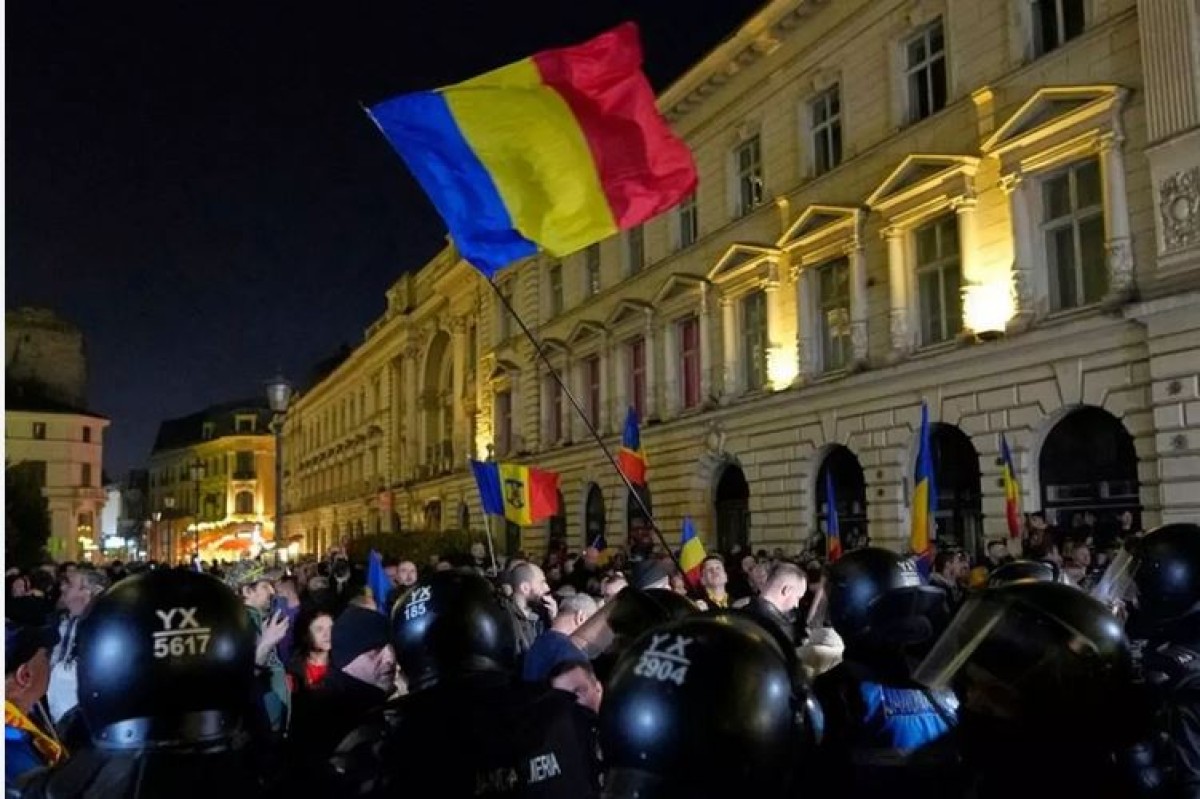952 Views
The Election That Refused to End—and Tore the Country Apart
Presidential elections are, by definition, pivotal milestones in the democratic journey of any nation—moments meant to affirm the public’s faith in institutions and to shape the political trajectory of the country. Yet, Romania’s recent presidential election has turned into something far more ominous: not a celebration of democracy, but a symbol of its fragility.
Rather than stabilizing the nation, the void left by the annulled first round of elections in December 2024 has shaken Romania to its democratic core. Trust in democratic institutions has plummeted, social cohesion has frayed, and the country now stands as a troubling case study in how vulnerable Eastern European democracies remain to both internal mismanagement and external manipulation.
What followed the annulment was a deepening crisis that laid bare the structural fissures within Romania’s political and civic architecture. Voter turnout dropped from over 65% to below 50%, a statistical collapse that speaks volumes about the public's disillusionment. The delay in clarifying foreign interference allegations—particularly the suspected Russian involvement—and the main parties’ inertia created fertile ground for opportunistic populists to exploit the chaos and further erode democratic unity.
The psychological toll of the repeat elections and ongoing uncertainty has been profound. According to surveys, 72% of Romanians reported fatigue from disinformation overload, while 58% experienced heightened anxiety and stress. This emotional erosion was most severe among the youth and low-income groups—those who already felt voiceless and sidelined. Social fragmentation intensified, generational divides widened, and in this vacuum of despair, extremist ideologies found fertile soil.
Far-right groups, capitalizing on platforms like TikTok and local social media, demanded the resignation of the interim government and called for immediate new elections. Their messaging, wrapped in populist outrage and demands for elite accountability, further polarized an already fractured public. Street clashes and rhetorical contradictions escalated the political crisis into a security dilemma, deepening the divide between institutional loyalists and defiant protesters.
Adding to the chaos was an alleged cyber onslaught—again pointing fingers toward Russia—and the now-infamous request by France’s intelligence agency to Telegram founder Pavel Durov, urging him to suppress moderate Romanian dissent. The backlash was swift, yet the move exposed the alarming complexity of the information warfare landscape. Bots and fake accounts pushed rumors of an "imminent war with Russia" and impending "economic collapse", creating a fog of confusion that blurred the line between truth and propaganda, even for the well-informed.
This climate of distrust has led to widespread concern about Romania’s dwindling political and social cohesion. Reputable polls show that more than half the population believes inter-party dialogue is at a dead end and that society is now starkly polarized. The resulting apathy, disengagement, and political numbness risk delegitimizing governance structures and undermining the state's ability to respond to economic or security crises.
In the midst of this upheaval, independent media outlets and human rights organizations stepped into the breach. Investigative journalists, Amnesty International, and the UN High Commissioner for Human Rights made notable efforts to shed light on external interference and fiscal manipulations. These attempts to preserve transparency were met with increased political pressure and cyberattacks—ironically validating their necessity.
Although their work did not alter the immediate outcome of the election, it did help raise public awareness and draw international support for Romanians’ right to a free vote.
The domestic turmoil has inevitably spilled into Romania’s strategic posture on the global stage. Interim governments and weakened centrist parties have compromised the country’s ability to act in concert with the EU and NATO. Leading think tanks now classify Romania as among the most vulnerable states in the region to Russian pressure—a strategic failure stemming not from foreign cunning alone, but from internal incoherence and a diminished diplomatic arsenal.
Romania’s experience should serve as a cautionary tale for all democracies. The failure of populists and the resilience of civil actors show that even in times of severe crisis, the path to democratic recovery remains open. Strengthening independent oversight institutions, raising citizens’ media literacy, and ensuring broad-based participation in decision-making are now imperatives. The crisis, while destabilizing, could become a catalyst for electoral reform, resistance to disinformation, and a renewed culture of dialogue.
Ultimately, the Romanian example underscores the high cost of allowing democratic decay to fester unchecked. As a battleground for East-West influence, Romania must now assert its autonomy—not as a pawn in geopolitical chess, but as a sovereign nation reclaiming its democratic compass. This will require systemic transparency, resistance to corruption and disinformation, and a united front to restore democratic cohesion and neutralize the social aftershocks of a broken electoral process.
Translated by Ashraf Hemmati from the original Persian article written by Amin Mahdavi

Comment
Post a comment for this article